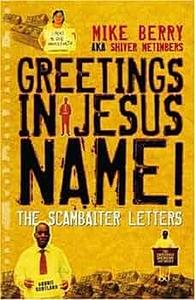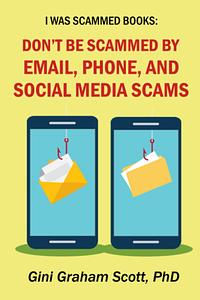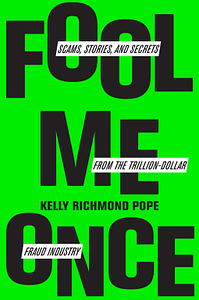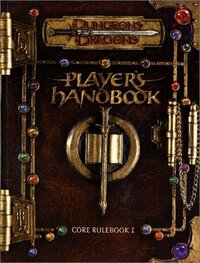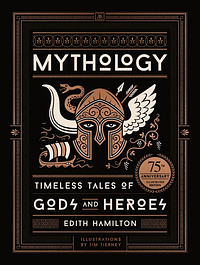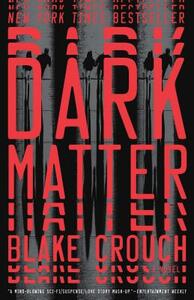Take a photo of a barcode or cover
vimcenzo's reviews
128 reviews
dark
funny
informative
lighthearted
fast-paced
Hilarious, although I have to say that while I know scammers can be very cruel and thoughtless, some of the victims in this book stand out as having some mental problems. I think that the tattoo guy was the worst story of them all; while it’s up to an individual’s perspective of how much retribution a scammer deserves, it feels as though a legitimate tattoo parlor was needlessly screwed by some shenanigans. Another scambait involves, arguably, nothing to do with the scam itself and is instead an art competition thing where the scammers, acting fully above board, send wood carving to the scambaiter with a promise they would be paid. Another scambait involved receiving $80 from a scammer; that it was donated to charity, I’m not sure balances out the cosmic scale here. (Scambaiter Kitboga, for example, tries not to have scammers burn through money as by his logic that money could be from a genuine victim.) The writer at one point tries to expunge any accusations of homophobia from himself by saying that West Africa (the home of his scambait victims) is itself homophobic and he is trying to twist the knife with the scammer. But it is clear immediately that the scammer is not aware of what “fag ” even means, and so it is clear that Berry is more acting in this raunchy way to curry the favor of his core audience. On some level, it reminds me less of a Kitboga video and more of the controversial Bumfights videos that came out around the same time that this was published.
Still, for all its faults, the stories and sagas were highly entertaining. Some taper off unsatisfyingly and I don’t know why they were included, but almost all of them, including the controversial ones, are a lot of fun. I wish there were more books like this! This is the only one I could really find.
Still, for all its faults, the stories and sagas were highly entertaining. Some taper off unsatisfyingly and I don’t know why they were included, but almost all of them, including the controversial ones, are a lot of fun. I wish there were more books like this! This is the only one I could really find.
Graphic: Bullying
Moderate: Biphobia, Body horror, Homophobia, Misogyny, Torture, Blood, Lesbophobia
Atrocious.
It must have seemed pretty fucking good to the author to have been able to publish a "book" where 80% of the content (yes, I counted) simply consisted of copying and pasting a collection of spam e-mails. For the purposes of being an archive of scam e-mails one might use for citation, this book gets a quarter of a star. There is little to no personal input or analysis. This is borderline plagiarism, only no scammer will claim credit and the pithy listicles that are cited in the book are almost common knowledge to anyone who knows anything about scams.
Nothing is informative, very little is original, it is all poorly formatted and has errors. At one point the reader is encouraged to take advantage of ads that prey on viewer insecurity to act immediately, simply if it "seems legit."
That this was written by a Ph.D graduate shakes my faith in academia to the core. That it was allowed to be published, independently or otherwise, shakes my faith in allowing people to do so at all. No one in their right mind should go anywhere near this book.
It must have seemed pretty fucking good to the author to have been able to publish a "book" where 80% of the content (yes, I counted) simply consisted of copying and pasting a collection of spam e-mails. For the purposes of being an archive of scam e-mails one might use for citation, this book gets a quarter of a star. There is little to no personal input or analysis. This is borderline plagiarism, only no scammer will claim credit and the pithy listicles that are cited in the book are almost common knowledge to anyone who knows anything about scams.
Nothing is informative, very little is original, it is all poorly formatted and has errors. At one point the reader is encouraged to take advantage of ads that prey on viewer insecurity to act immediately, simply if it "seems legit."
That this was written by a Ph.D graduate shakes my faith in academia to the core. That it was allowed to be published, independently or otherwise, shakes my faith in allowing people to do so at all. No one in their right mind should go anywhere near this book.
informative
fast-paced
It's written in a bit of a contradictory style, with its very approachable language contradicting what feels like university-focused chapter summaries at the end of each section as if intending to use this for a university program. I'm not sure that I would, personally. It also feels like it has a slight bias towards entertainment over informativeness, and an attempt to ascribe the author's own moral code in order to define scammers, victims, and whistleblowers. It is an interesting proposition and undertaking, but I don't know if such a thing can be prescriptive.
Additionally, however briefly it occurs, I take issue with the author's illustration of scammerlike traits being reflective of "toxic masculinity" (technically, it is a student of theirs that the author merely agrees with, but all the same) and that complacency in more well-meaning scam perpetrators are inherently feminine. It harms the overall thesis to split things into a gender binary: anyone can be a victim, and anyone can be a scammer. Obfuscating one and gently chiding the other will result in a lowered guard if these ideas are taken to heart.
Moreover, stressing that women are more frequently whistleblowers (on page 192, under an unsourced "research has shown") does not contradict the previous point necessarily, but I find that it contradicts the complacent "people pleaser" narrative from before. Were someone to be a toxic adherent to these binaries, in an extreme case one may decide that to report a crime is feminine. Other social issues like racial and LGBTQIA+ discrimination are handled very respectfully while not being so straightforwardly pitying, so I genuinely don't know why these points were thrown into the final draft.
Additionally, however briefly it occurs, I take issue with the author's illustration of scammerlike traits being reflective of "toxic masculinity" (technically, it is a student of theirs that the author merely agrees with, but all the same) and that complacency in more well-meaning scam perpetrators are inherently feminine. It harms the overall thesis to split things into a gender binary: anyone can be a victim, and anyone can be a scammer. Obfuscating one and gently chiding the other will result in a lowered guard if these ideas are taken to heart.
Moreover, stressing that women are more frequently whistleblowers (on page 192, under an unsourced "research has shown") does not contradict the previous point necessarily, but I find that it contradicts the complacent "people pleaser" narrative from before. Were someone to be a toxic adherent to these binaries, in an extreme case one may decide that to report a crime is feminine. Other social issues like racial and LGBTQIA+ discrimination are handled very respectfully while not being so straightforwardly pitying, so I genuinely don't know why these points were thrown into the final draft.
More of a reference than an actual book to read cover to cover
Tends to be a bit of a slog. Will try again in audiobook format.
Generic forgettable TV script trash. One review in the beginning called it like a bag of barbecue chips, and y’know what? I couldn’t agree more.
funny
lighthearted
fast-paced
For non-book records, review text and ratings are hidden. Only mood, pace, and content warnings are visible.
funny
lighthearted
fast-paced
For non-book records, review text and ratings are hidden. Only mood, pace, and content warnings are visible.
funny
lighthearted
fast-paced
For non-book records, review text and ratings are hidden. Only mood, pace, and content warnings are visible.
funny
lighthearted
fast-paced
For non-book records, review text and ratings are hidden. Only mood, pace, and content warnings are visible.
